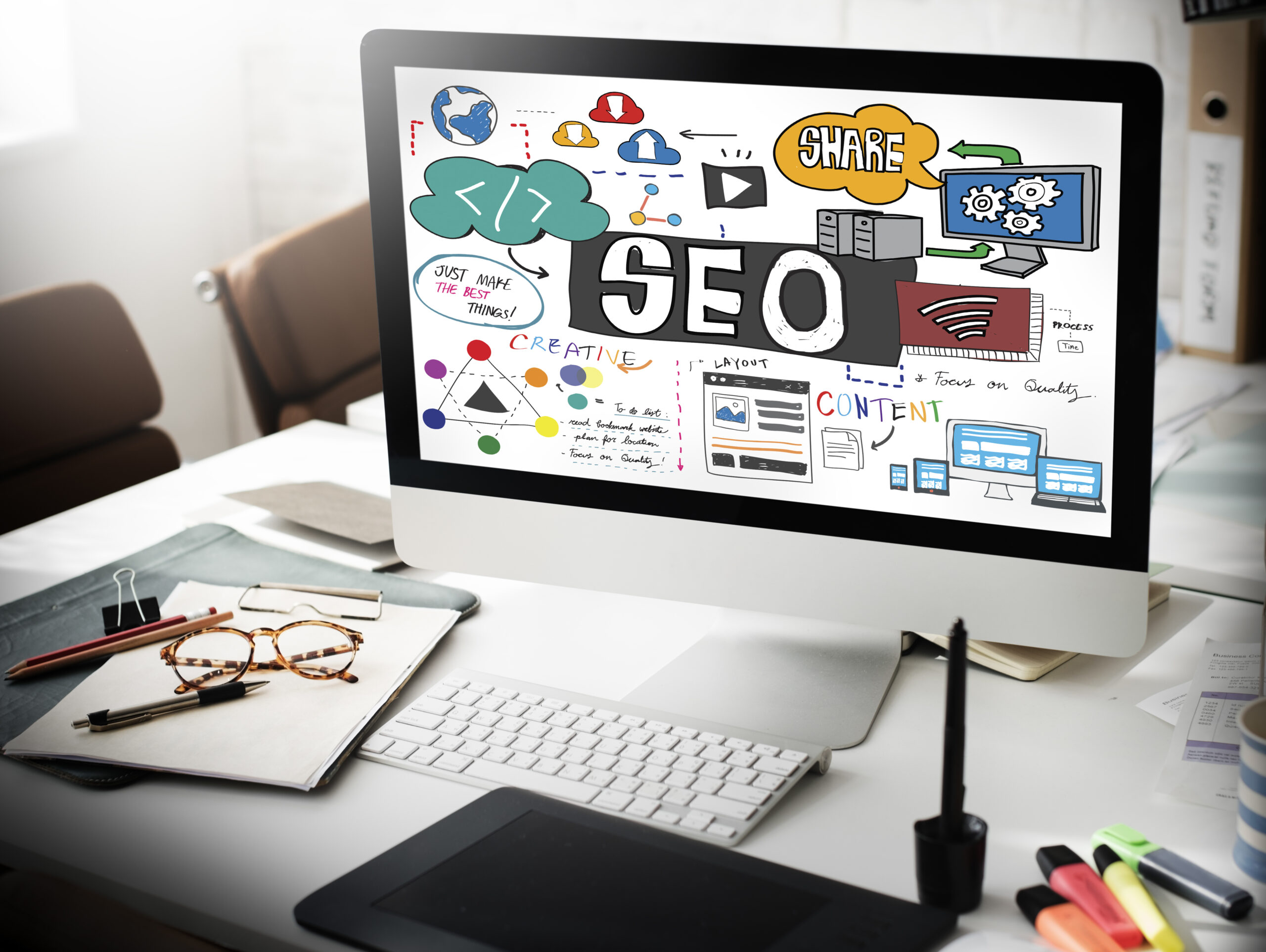Long a foundation for digital marketing success, search engine optimization (SEO) has been especially important. It affects how companies present themselves on search engines, clearly one of the most important sources of traffic and exposure. But conventional SEO techniques are useless, as algorithms become smarter and human behavior gets more dynamic. AI SEO tools will revolutionize companies striving to stay ahead in the rapidly evolving digital landscape of today.
This paper examines the evolution of SEO, the emergence of AI-powered SEO tools, their game-changing advantages, real-world success stories, and the challenges companies face when adopting these tools. Whether your company owner is looking for that competitive edge, an SEO specialist, or a seasoned digital marketer, you will find a thorough guide to get Agile SEO solutions here.
The Evolution of SEO
SEO was not always the sophisticated, user-centric discipline it is today. Here is its chronology and the key changes that shaped modern practice:
The Early Days of SEO
In the late 1990s and early 2000s, SEO was simple—businesses concentrated on keyword stuffing, link farms, and exact-match domain names to control search engine results. These techniques degraded user experience and content quality even as they boosted traffic.
Rise of Algorithm Changes
Google disrupted the ecosystem with algorithm tweaks such as Panda, Penguin, and Hummingbird. These changes penalized behaviors like thin content, private blog networks (PBNs), and over-optimized anchor texts, therefore pushing website owners to give top priority to high-quality, user-oriented material.
User Intent and Content-Driven Strategies
Google’s emphasis on comprehending user intent using natural language processing (NLP) began with the release of RankBrain and BERT. Modern search stresses structured data, E-A-T (expertise, authority, trustworthiness), and tailored content addressing particular audience needs.
Integration of Advanced Technology
Machine learning, natural language processing, and predictive analytics, combined, have opened the path for a new era of optimization wherein artificial intelligence analyzes search trends, comprehends behavior patterns, and effectively automates repeated SEO chores.
The ultimate truth is that from a one-dimensional emphasis on keywords to complex, multi-layered techniques motivated by artificial intelligence, SEO has changed.
How AI is Transforming SEO Practices
So it can trasfor their approach to SEO with the help of artificial intelligence. From data analysis to creative output, AI-powered technologies, such as predictive analytics, natural language processing (NLP), and machine learning (ML), are optimizing everything. These are the ways artificial intelligence is changing the field:
Machine Learning for Smarter Insights
SEO technologies made possible by machine learning can examine enormous amounts of data, find trends, and provide insights quicker than human experts. Artificial intelligence improves hyper-targeted marketing methods by automating trend detection, behavioural monitoring, and segmentation through tools like Google Analytics.
NLP for Semantic Search
NLP guides search engines toward context and subtlety in material. Today, SEO technologies find long-tail keywords that fit natural conversational tones and associated semantic variances, therefore guaranteeing alignment with user queries.
Predictive Analytics for Future-Proofing Strategies
Through search trends, algorithm changes, and user behavior pattern predictions, predictive analytics provides companies a competitive advantage. This enables companies to actively change their approaches for the best digital presence.
Benefits of AI-Powered SEO Tools
AI SEO tools bring both power and precision to digital strategies. Here’s how they revolutionize SEO:
1. Accelerated Keyword Research
AI tools extract valuable keyword insights from vast amounts of data in minutes. Whether it’s Jasper or Clearscope, these tools automate keyword generation, clustering, and relevancy scoring—saving hours of manual work.
2. Enhanced Content Optimization
AI-powered platforms like SurferSEO and MarketMuse provide real-time content recommendations aligned with search engine algorithms. Their capabilities include identifying content gaps, offering tone and structure suggestions, and monitoring SEO consistency.
3. Competitive Backlink Analysis
Backlink profiles are a critical component of SEO. Tools like SEMrush’s AI assistant offer predictive modeling to reveal high-potential backlink opportunities. They even evaluate your competitors’ strategies to give you a leg up.
4. Improved User Experience (UX)
AI tools enhance usability by tracking website speed, detecting bugs, and recommending UX improvements. The smoother your site, the higher its chances of ranking well.
5. Scalability and Efficiency
From automating reporting to generating custom SEO recommendations, AI eliminates inefficiencies and scales efforts for businesses of all sizes—whether you’re a startup or a bustling e-commerce giant.
Real-World Success Stories
1. SurferSEO for Content Optimization
A mid-sized e-commerce business used SurferSEO to revamp its blog strategy and landing pages. By following detailed optimization recommendations tailored to search intent and on-page SEO, they achieved a 30% increase in organic traffic within six months.
2. Jasper’s Role in Local SEO
A local service provider operating across multiple neighborhoods adopted Jasper to optimize their regional content. By incorporating geo-specific keywords and automated copy suggestions, they experienced a 50% boost in visibility and a significant uptick in appointment bookings.
3. Clearscope for Keyword Rankings
A startup implemented Clearscope for their content strategy to align blog posts with high-intent user searches. The result? A 25% increase in keyword rankings within three months—giving their website newfound visibility in a crowded marketplace.
4. MarketMuse for Comprehensive Content Planning
A consulting firm transitioned to MarketMuse to enhance its SEO strategy. The platform’s AI-driven planning accounted for industry trends and audience needs, helping them double their traffic and attract premium leads within the span of a year.
Agility in SEO with AI Tools
Agility is no longer a bonus; it’s a necessity in today’s dynamic SEO environment. Businesses need to adapt quickly to shifts in:
- Algorithm updates (like Google’s Core Web Vitals).
- Evolving customer behavior and preferences.
- Emerging online content formats (video, short-form, etc.).
AI SEO tools empower businesses to stay nimble, offering real-time insights and predictive recommendations. They make it easier to pivot strategies, test hypotheses, and align content with modern search intent.
Challenges and How to Overcome Them
Adopting AI SEO tools isn’t without its hurdles. Here are some common challenges and solutions:
Challenges and How to Overcome Them
Adopting AI SEO tools isn’t without its hurdles. Here are some common challenges and solutions:
- Data Privacy
- Challenge: AI tools collect vast amounts of user data, raising privacy concerns.
- Solution: Choose platforms that prioritize compliance with data protection regulations (GDPR, CCPA) and transparent policies.
- Cost
- Challenge: Advanced AI tools may seem expensive for smaller organizations.
- Solution: Start with tiered pricing models to access essential features initially and scale up as ROI becomes apparent.
- Learning Curve
- Challenge: Learning to use these tools effectively can be daunting.
- Solution: Leverage training resources, tutorials, and customer support provided by AI SEO platforms to accelerate adoption.
The Future of AI in SEO
What’s next for AI in SEO? Emerging technologies are already poised to further revolutionize the landscape:
- Voice Search Optimization
With voice commanding 50% of search queries, AI will deepen its role in optimizing conversational search.
- Visual Content Recognition
AI will refine its ability to analyze and optimize image content, enhancing elements like alt text, captions, and image rankings.
- AI-Driven User Experiences
Beyond SEO, AI is set to optimize user journeys. For example, when paired with hyper-personalization tools, AI could tailor entire websites to meet individual preferences.
Why Your Business Can’t Ignore AI SEO Tools
One cannot overlook the probable advantages of incorporating artificial intelligence-powered SEO techniques. From saving time to generating innovative ideas and obtaining until unheard-of outcomes, AI SEO tools mix power and accuracy in ways that conventional approaches cannot equal.
Your company should be flourishing in the dynamic digital terrain. Use SurferSEO, MarketMuse, Jasper, and Clearscope as AI SEO tools to maximize your approach.
Are you ready to take the lead? Experiment with any one of these methods first, then be ready to rule the search results in this competitive age!




